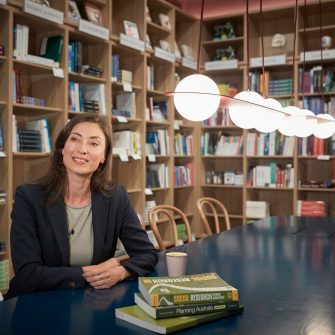
How to apply
PhD students in our school normally commence their study in Term 1 around early February each year. Prospective candidates are invited to submit their Expressions of Interest (EOI) between May 1st and July 31st to be considered for admission in the following year. Please send your EOIs via email to Banking and Finance HDR Admissions. Only selected applicants will be invited to apply via the UNSW central portal.
Out of round EOIs submitted after the deadline could be considered only for interested candidates with strong prior research experience, e.g., with a masters by research degree from a leading global institution.
Important: Make sure you satisfy the UNSW academic and language entry requirements before submitting your EOI. Please read the “Entry Requirements” section below.
-
Academic Entry Requirement
The minimum academic entry requirement for Stream 1 is the equivalent of a four-year UNSW Bachelor’s degree in a relevant discipline (Economics, Finance, and related subjects) with first or upper second class honours. The minimum academic entry requirement for Stream 2 is the equivalent of a four-year UNSW Bachelor’s degree with an Honours year (research), or the equivalent of a UNSW Masters’ degree with substantial research component with first or upper second class honours.
Note: an upper second class honours is equivalent to a weighted average mark of at least 75/100 (i.e., a Distinction) at UNSW and is allocated to roughly the top 30% of students. Grading systems vary across countries. For more information, read this guide for grade equivalencies between countries.
English Language Requirement
UNSW recognises the follow countries as English-speaking: American Samoa, Australia, Bahamas, Barbados, Belize, Botswana, Canada, Fiji, Gibraltar, Ghana, Guyana, Ireland, Jamaica, Kenya, Lesotho, Liberia, New Zealand, Nigeria, Papua New Guinea, Singapore, Solomon Islands, South Africa, The Gambia, Tonga, Trinidad and Tobago, United Kingdom (including Northern Ireland), United States of America, Zambia, Zimbabwe.
If you are not a citizen of an English-speaking country, then you will need to establish that you have sufficient English language fluency. There are four ways to establish sufficient English language fluency: English Tests (including IELTS, TOEFL, Pearson and Cambridge), UNSW Global English Course, Prior Study, or an English Waiver. For details on each of these, please review our English language requirements.
About the Doctor of Philosophy (PhD) Banking & Finance
UNSW’s Doctor of Philosophy (PhD) Banking & Finance will prepare you to become a globally focused and socially engaged research leader. You’ll be joining a cohort of high-achieving research students in tackling modern-day challenges at the forefront of Banking & Finance, working alongside leaders in the field (ranked 20th in the world, QS Subject Rankings, 2022). This is your opportunity to become integrated into the UNSW Business School’s community of scholars.
You’ll first undertake rigorous coursework covering relevant theories and research methods. As part of the program, you’ll also be involved in research projects from an early stage. This training will equip you with the skills required to identify, analyse, and solve problems in the field.
You’ll then pursue independent research under the supervision of high-profile UNSW academics, culminating in a doctoral thesis. Your PhD thesis will showcase your research skills and enable you to make an original contribution to the field of Banking & Finance.
There will also be exciting opportunities throughout to interact with industry leaders, and to develop your teaching portfolio. The training is geared toward preparing you for a career in academia, although other career paths (e.g., consulting, government, industry, non-profit) are also enabled.
PhD program structure
Most students complete the overall PhD study (including the MPDBS year as illustrated below) in four to five years. For candidates with a strong prior research experience, e.g., with a masters by research degree from a leading global institution, it is possible to complete the study in three to four years without the MPDBS year. Admitted students will be notified in the admission offer about the need of completing the MPDBS study.
Year One: Master of Pre-Doctoral Business Studies (MPDBS)
The first year of study is designed to provide a rigorous foundation to conduct independent research. You’ll learn a range of methodologies and build your communication and presentation skills.
Your first year of coursework study will cover fundamental research methods. You’ll also start developing key research skills such as identifying, framing, presenting, and writing academic contributions. You’ll work as a research assistant on faculty research projects and start working on your own research as your skills develop.
The first year will help you identify your potential thesis supervisor for the PhD component of the program. Upon successful completion of the first year, you’ll be awarded a Master of Pre-Doctoral Business Studies. A brief overview of the first year is presented below.
- Program Core Course: Foundations of Business Research; Econometric Analysis; Business Research Project Seminar
- Stream Core Courses: Microeconomic Theory I; Mathematical Economics; Asset Pricing Theory; Research Methods in Finance 2; Empirical Corporate Governance
- Research Assistance Work
Year Two: Specialised Coursework & Thesis Work
During the second year, you’ll continue in the Banking & Finance stream with a further year of advanced coursework.
Examples of courses you may take include:
- Empirical Corporate Finance
- Corporate Finance Theory
- Empirical Asset Pricing
Your second year is also when you’ll identify your thesis topic with your supervisor. You’ll engage in literature review, research design and present your research proposal to the School at the end of the year.
Years Three Onwards: Thesis Work
The final two or three years of the program are focused on conducting full-time research and completing your doctoral thesis. This is your opportunity to address some of the biggest challenges in Banking & Finance and make a significant contribution to knowledge in the field. Your research will offer new critical thinking and withstand critical analysis from expert researchers in the area.
For more details about the School of Banking & Finance and our PhD program, check out our home page, people page and research students page.
-
Your PhD will set you on the path to a career in a premier research institution, anywhere in the world. Throughout your research degree, you’ll also have many opportunities to develop your teaching portfolio.
Beyond academia, there’s also significant demand in the private and public sectors for people with deep knowledge and sound research and analytical skills*.
Whether you’re looking to pursue a career in academia, or take your research skills out to industry, a PhD in Banking & Finance from UNSW will get you there.
* Source: 2019 Advancing Australia’s Knowledge Economy Report
Degree type
Postgraduate Research
Duration
4 years full-time, 5-8 years part-time
Commencing terms
Term 1 – February
Program code
1561
Delivery mode
On Campus
Domestic / International
Domestic
International
Useful links
Discover
Accreditation








